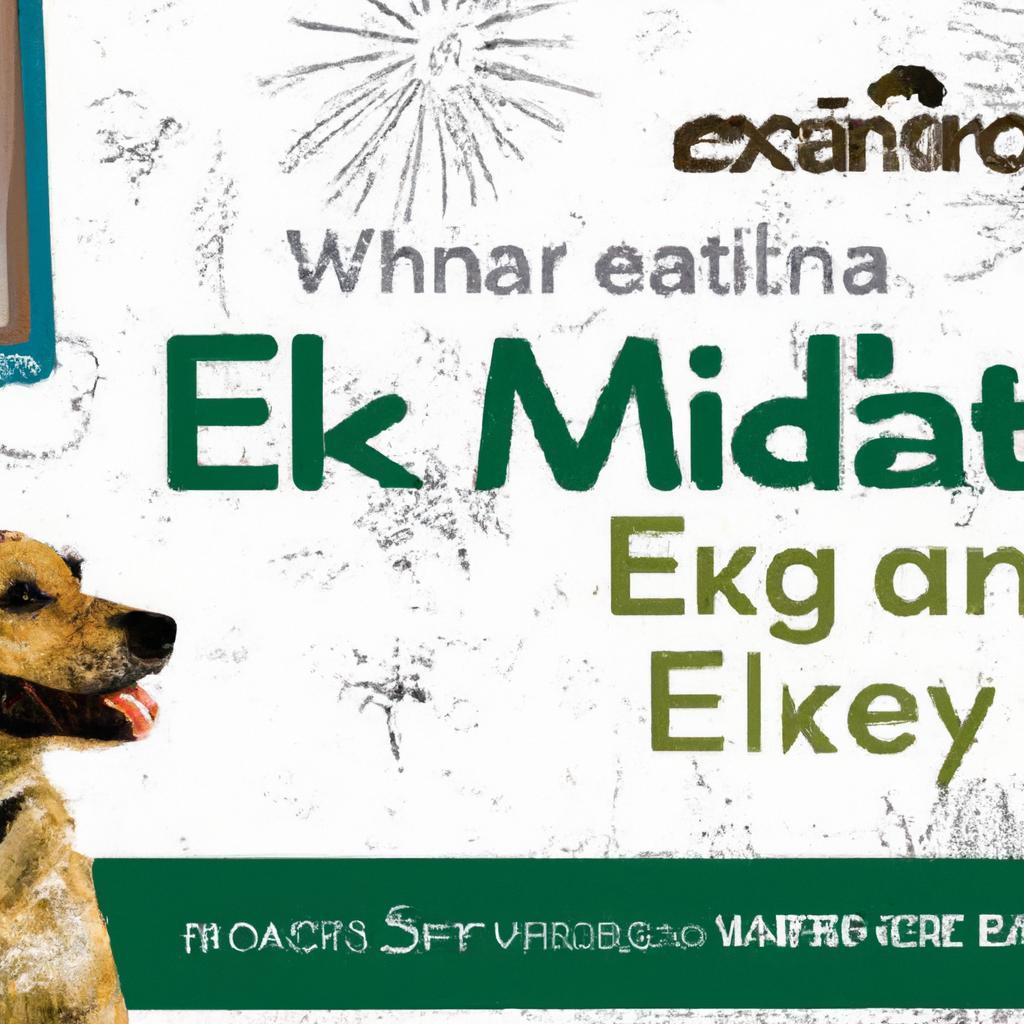Every morning, Max the golden retriever eagerly awaited his bowl, tail wagging in anticipation. His owner, Sarah, had learned that a balanced diet was crucial for Max’s health and happiness. She filled his bowl with high-quality kibble, rich in protein, mixed with fresh vegetables and a sprinkle of fish oil for a shiny coat. Each meal was a step towards a longer, healthier life. Just like Max, your dog deserves the best. Invest in their nutrition today, and watch them thrive with energy and joy!
Contents
- Understanding Your Dogs Nutritional Needs for Optimal Health
- Essential Components of a Balanced Diet for Dogs
- Choosing the Right Food: Dry, Wet, or Raw Options
- Tailoring Your Dogs Diet to Their Age, Size, and Activity Level
- Q&A
Understanding Your Dogs Nutritional Needs for Optimal Health
To ensure your dog thrives, it’s essential to provide a balanced diet that meets their specific nutritional requirements. Dogs, like humans, need a variety of nutrients to maintain their health, energy levels, and overall well-being. A well-rounded diet typically includes:
- Proteins: Vital for muscle development and repair, proteins should come from high-quality sources such as chicken, beef, fish, or plant-based options.
- Carbohydrates: These provide energy and should be derived from whole grains, vegetables, and fruits, which also offer fiber for digestive health.
- Fats: Healthy fats are crucial for skin and coat health, as well as brain function. Look for sources like fish oil or flaxseed oil.
- Vitamins and Minerals: Essential for various bodily functions, these can be found in fresh fruits and vegetables, or through a well-formulated dog food.
Portion control is equally important in meeting your dog’s nutritional needs. Overfeeding can lead to obesity, which poses serious health risks. Consult with your veterinarian to determine the appropriate daily caloric intake based on your dog’s age, weight, activity level, and breed. This tailored approach ensures that your furry friend receives the right amount of nutrients without excess calories.
Additionally, consider your dog’s life stage when planning their diet. Puppies require more protein and calories to support their rapid growth, while senior dogs may benefit from lower-calorie diets to prevent weight gain. Special dietary needs may also arise due to health conditions, such as allergies or sensitivities. Always consult your veterinarian for personalized advice to address these specific requirements.
Lastly, hydration is a key component of your dog’s diet. Fresh, clean water should always be available to keep your dog hydrated and support their overall health. Monitor their water intake, especially during hot weather or after exercise, to ensure they are drinking enough. By focusing on these essential aspects of your dog’s diet, you can help them achieve optimal health and vitality.
Essential Components of a Balanced Diet for Dogs
To ensure your dog thrives, it’s crucial to incorporate a variety of essential nutrients into their daily meals. A well-rounded diet should include **high-quality proteins**, which are vital for muscle development and overall health. Look for sources such as chicken, beef, fish, or lamb. These proteins not only provide energy but also support a strong immune system and healthy skin.
In addition to proteins, **healthy fats** play a significant role in your dog’s diet. Fats are a concentrated source of energy and are necessary for the absorption of certain vitamins. Incorporate sources like fish oil or flaxseed oil to promote a shiny coat and healthy skin. These fats also contribute to brain health and can improve cognitive function, especially in older dogs.
Don’t overlook the importance of **carbohydrates** in your dog’s diet. While dogs are primarily carnivorous, carbohydrates provide essential energy and aid in digestion. Opt for whole grains like brown rice or oats, as well as vegetables such as sweet potatoes and peas. These ingredients not only supply energy but also offer fiber, which is crucial for maintaining a healthy digestive system.
Lastly, **vitamins and minerals** are indispensable for your dog’s overall well-being. A balanced diet should include a variety of fruits and vegetables, such as blueberries, carrots, and spinach, which are rich in antioxidants and essential nutrients. Additionally, consider adding a high-quality dog supplement to fill any nutritional gaps and ensure your furry friend receives all the necessary vitamins and minerals for optimal health.
Choosing the Right Food: Dry, Wet, or Raw Options
When it comes to selecting the best diet for your dog, understanding the differences between dry, wet, and raw food options is essential. Each type of food has its own unique benefits and can cater to specific dietary needs. **Dry food**, often referred to as kibble, is convenient and cost-effective. It helps maintain dental health by reducing plaque and tartar buildup, making it a popular choice among dog owners.
On the other hand, **wet food** offers a higher moisture content, which can be particularly beneficial for dogs that may not drink enough water throughout the day. This option is often more palatable, making it an excellent choice for picky eaters or dogs with dental issues that make chewing difficult. Additionally, wet food can provide a variety of flavors and textures, keeping mealtime exciting for your furry friend.
For those looking to provide a more natural diet, **raw food** is gaining popularity. This option typically includes uncooked meat, bones, fruits, and vegetables, mimicking what dogs would eat in the wild. Advocates of raw feeding argue that it can lead to improved coat condition, better digestion, and increased energy levels. However, it’s crucial to ensure that a raw diet is balanced and meets all nutritional requirements, as improper feeding can lead to health issues.
Ultimately, the right choice depends on your dog’s individual needs, preferences, and any specific health considerations. Consulting with your veterinarian can help you make an informed decision that aligns with your dog’s lifestyle. Whether you choose dry, wet, or raw food, ensuring a balanced and nutritious diet is key to your dog’s overall health and happiness.
Tailoring Your Dogs Diet to Their Age, Size, and Activity Level
When considering your dog’s daily diet, it’s essential to recognize that their nutritional needs vary significantly based on their age, size, and activity level. **Puppies**, for instance, require a diet rich in protein and calories to support their rapid growth and high energy levels. Look for high-quality puppy food that contains essential nutrients like DHA for brain development and calcium for strong bones. Feeding them small, frequent meals can also help manage their energy levels throughout the day.
As dogs transition into **adulthood**, their dietary requirements shift. Adult dogs generally need a balanced diet that maintains their weight and supports their overall health. Depending on their size, you might consider a formula tailored for small, medium, or large breeds. It’s crucial to monitor their weight and adjust portion sizes accordingly to prevent obesity, which can lead to various health issues. Incorporating a mix of protein sources, healthy fats, and fiber will keep them satisfied and nourished.
For **senior dogs**, the focus should be on maintaining their health and mobility. Older dogs often benefit from diets lower in calories but higher in fiber to aid digestion. Look for foods enriched with joint-supporting ingredients like glucosamine and omega fatty acids. Additionally, senior dogs may require more frequent, smaller meals to accommodate their slower metabolism and to help manage any dental issues they might face.
consider your dog’s **activity level** when selecting their food. Active dogs, such as working breeds or those that participate in agility training, need a higher caloric intake to fuel their energy. Opt for formulas designed for active dogs that provide the necessary nutrients to support endurance and recovery. Conversely, less active dogs may require a lower-calorie diet to prevent weight gain. Always consult with your veterinarian to tailor a diet that meets your dog’s specific needs, ensuring they lead a healthy and happy life.
Q&A
-
What type of food should I feed my dog?
Choosing the right food for your dog is crucial. Opt for high-quality commercial dog food that meets the AAFCO (Association of American Feed Control Officials) standards. Look for options that list real meat as the first ingredient, and avoid foods with excessive fillers or artificial additives.
-
How much should I feed my dog daily?
The amount of food your dog needs depends on their age, size, and activity level. Generally, consult the feeding guidelines on the dog food packaging, but a good rule of thumb is to feed adult dogs about 2-3% of their body weight in food daily, divided into two meals.
-
Can I give my dog table scraps?
While it may be tempting to share your meals, many human foods can be harmful to dogs. If you want to give your dog treats, stick to healthy options like fruits and vegetables, and always avoid toxic foods such as chocolate, grapes, and onions.
-
Should I consider a special diet for my dog?
If your dog has specific health issues or dietary restrictions, consult your veterinarian for a tailored diet plan. Special diets may include grain-free, hypoallergenic, or weight management options, ensuring your dog receives the nutrients they need for optimal health.
providing your dog with a balanced diet is essential for their health and happiness. By choosing high-quality ingredients and consulting with your vet, you can ensure your furry friend thrives every day. Invest in their nutrition today for a healthier tomorrow!

大家好,我是彼得潘,專業的手法身體治療師。我喜歡探索和研究各種主題,並透過與人工智慧的合作分享專業、實用、有趣的文章。我們定期進行人工審核,以確保內容的準確性。如果您發現文章中有任何不準確的地方,請隨時與我們聯繫,我們會及時糾正。您可以透過 [email protected] 與我們聯繫。



